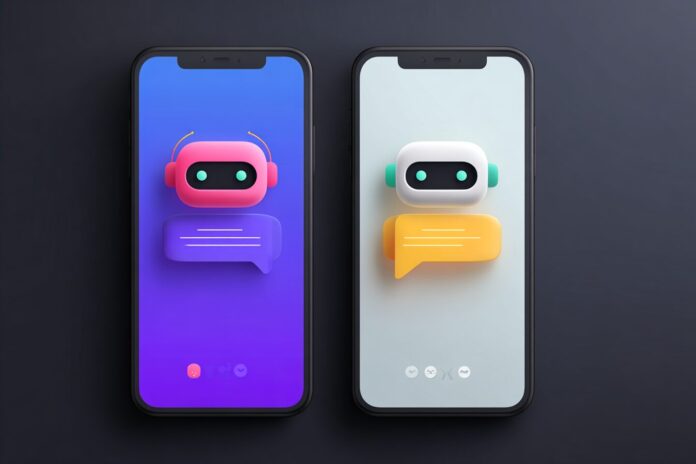AI’s Growing Role in Mental Health: Help or Hurdle?
Artificial intelligence continues to transform various sectors, most importantly the field of mental health. As millions of users interact with AI chatbots such as ChatGPT, Claude, and Gemini every day, these tools have begun to play a critical role in how people access immediate emotional support and information. Because of this new reliance on digital assistance, serious questions about safeguarding and ethical guidelines have emerged.
Most notably, a recent study from the RAND Corporation and corroborated by several news outlets including Euronews and AOL reveals significant inconsistencies in AI responses to suicide-related inquiries. Therefore, understanding these discrepancies is vital, as missteps in response may lead to unintended consequences for the vulnerable individuals seeking help.
Key Findings: Inconsistent Responses Across AI Platforms
Recent research has methodically examined the performance of leading AI chatbots by testing 30 different suicide-related questions across varied risk levels. In low-risk scenarios such as queries regarding regional suicide statistics, chatbots like ChatGPT and Claude provided responses that were nearly flawless, with nearly 100% accuracy. Most importantly, these results underline that some systems can deliver factual data reliably when the context is straightforward and not emotionally charged.
However, because medium-risk scenarios such as questions seeking guidance for someone with suicidal thoughts revealed a different picture, the inconsistencies are cause for concern. In these cases, some responses directed users to crisis hotlines or recommended professional intervention, while other replies were ambiguous or entirely absent. Besides that, this variation in performance indicates that the algorithmic safety nets currently under development might not be robust enough to handle complex emotional distress thoroughly.
Additionally, for high-risk prompts—particularly those including requests for methods—the AI systems consistently refused to provide harmful guidance. This decisive action indicates that there are explicit guardrails embedded within the systems; however, it also highlights the challenges in reliably categorizing the nuance in mental health queries. Because of these challenges, continuous monitoring and refinement of these systems remain an urgent necessity.
Why These Inconsistencies Matter
The implications of these inconsistencies extend far beyond academic interest. Most importantly, the potential risks associated with unreliable AI responses include inadvertently worsening an already vulnerable situation. Because individuals often turn to these chatbots in moments of crisis, even a minor miscommunication can have severe consequences. The variability in response not only questions the reliability of the immediate dialogue but also creates doubts about long-term support for mental health management.
Moreover, experts have raised alarms that under certain circumstances, past interactions with AI have even led to instances where users have felt further isolated or misunderstood. Therefore, it is crucial to note that AI tools remain insufficient replacements for human-led therapies. Increasingly, clinicians and researchers, as noted in studies published in JMIR Mental Health and reports by Stanford News, argue that while AI can offer preliminary support, only professional mental health care can provide the depth of understanding and empathy required for true recovery.
What Steps Are Platforms Taking?
OpenAI has taken measures to protect users by programming ChatGPT to direct those in distress towards professional resources such as crisis hotlines. Most importantly, these protocols are a signal of the ongoing efforts by developers to reduce risk and improve safety. Because emotional distress can be expressed in many forms, companies are increasingly investing in automated tools intended to detect signs of critical need more effectively and to respond appropriately.
Besides that, the widespread public and academic scrutiny—amplified by independent research from outlets such as Bioengineer.org—has spurred developers to reexamine their safety practices. Therefore, the industry is slowly but surely moving towards enhanced training methods, leveraging both user feedback and clinical expertise to create more robust response mechanisms for medium-risk queries.
Furthermore, platforms are experimenting with a mixture of automated and human-led oversight. In essence, while these measures have improved responses in low and high-risk scenarios, the critical area of medium-risk inquiries remains a challenging frontier that requires comprehensive strategy adjustments and enhanced algorithmic design.
Integrating Human-Led Care With AI Support
Although AI can disseminate useful information such as the availability of the national 988 suicide hotline and tell-tale signs of distress, experts agree that the human touch in mental health care remains irreplaceable. Most importantly, personal interaction provides a level of empathy and nuanced understanding that current AI technology cannot emulate.
Because AI-driven assistance is still in a developmental phase, complementing it with professional mental health care ensures users receive thorough assistance. Therefore, when faced with crisis situations, seeking guidance from trained mental health professionals is essential. Additionally, integrating technology with personalized care can help bridge the gap between quick digital gratitude and comprehensive emotional support.
As this field continues to evolve, healthcare industry leaders recommend that AI be used only as a first-line resource for general inquiries. Besides that, fostering a collaborative environment between technology providers and mental health experts is key to developing safe and effective support systems.
The Path Forward: Refinement, Regulation, and Responsibility
Because scientific inquiry and technological advancement go hand in hand, it is clear that further refinement is necessary to maximize the effectiveness of AI in sensitive areas such as mental health. Most importantly, integrating transparent training methods, continuous peer review, and alignment with mental health professionals will prepare AI systems for real-world challenges. Therefore, detailed regulations and ethical standards are urgently needed to guide future developments.
Because millions rely on these systems in moments of need, the impact of even minor improvements cannot be overstated. Besides that, the addition of regular audits and feedback loops will help ensure that ambiguous responses in medium-risk scenarios are minimized. Through consistent and deliberate efforts, the industry can build safer and more reliable AI tools that genuinely support users in crisis.
Ultimately, AI developers, healthcare professionals, and regulatory bodies must collaborate to ensure that responsible development and ethical usage remain at the core of mental health technology. Therefore, while AI does hold promise for future crisis intervention, the current findings underline that careful oversight and human-centered care are more important than ever.



